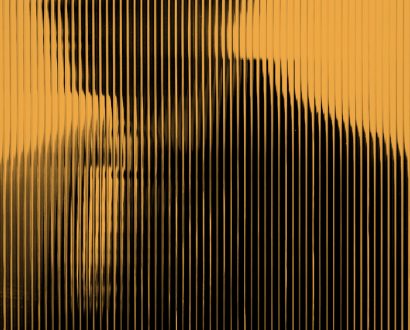As someone who frequently travels for work, I’m well-versed in the sounds that accompany flights, as are many of you. The unhappy child two rows back, the gentleman snoring to the right, the couple having an enthusiastic argument in the aisle. Meltdowns of all types that you just can’t avoid – physical escape is impossible. You and 100 of your closest fellow passengers are trapped and about to reach breaking point.
Down on the ground the noise persists. From honking horns to barking dogs, auditory assaults are among the more substantial stressors we face in our day-to-day lives. The inability to manage or control our acoustic environment only increases stress levels, sours our mood, and elevates blood pressure. And no more so than when it comes to the office – noise is the number one productivity killer in the workplace.
So, why is it so incredibly difficult to find relief from the cacophony of noise that seems to follow us around like an audible shadow? The answer is simple: we aren’t meant to.
Sound science
At least, that’s the case speaking from an evolutionary perspective. Hearing is one of the most powerful senses, and for millennia having a highly developed sense of sound was crucial to survival. Our ancestors were alerted to danger by their finely tuned ears, enabling them to fight foes or take flight from creatures stalking and preying on them.
In fact, sound is so intertwined with our well-being that when listening intently we can’t really do anything else at the same time. Ever tried to have a conversation with your partner at the same time as reading a book? Studies show that humans can only process a certain level of sensory inputs at once, so if you’re doing two things at the same time, naturally one activity will dominate.
Humans have another wonderful feature – eyelids – which enable us to avoid seeing unpleasant things. Comparatively, we lack earlids, making it virtually impossible to ‘shut off’ our ears. It would seem that as humans we are supposed to hear noise and then, when necessary, get away from it.
But that doesn’t mean we have to enjoy all noise.
Don’t get me wrong, noise is not always a bad thing. The chirping of songbirds in the morning can have a relaxing effect, and some studies show that while noise can be a hindrance when it comes to performing complex tasks, the right soundtrack can often improve our performance of simple ones.
Pursuing the sound of silence
To perform well at work, conduct everyday tasks and preserve our sanity, humans have developed many creative ways to avoid disturbing noises. While our first (and most primal) instinct is to flee the offending racket, that strategy is not always the most effective, particularly when working.
Even if we are able to relocate and put distance between ourselves and the noise, who’s to say we won’t be distracted by a different, perhaps even more obtrusive, noise?
Alternately, the advent of noise-cancelling technologies, or old-school earplugs, allows us to tune out the noise and focus on the task at hand. Another option, and one that is growing in popularity, is to create an alternative soundscape.
Essentially, we use music or a podcast or audio book to mask the obtrusive noise with something more pleasant, and in line with our own preferences.
Of course, if all else fails in our quest for peace and quiet, there is always the option of trying to relax, tune it out, and remember that we weren’t really supposed to avoid noise in the first place.







